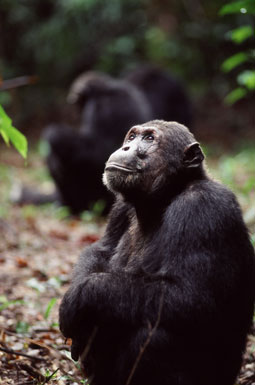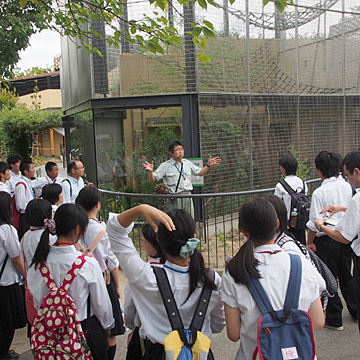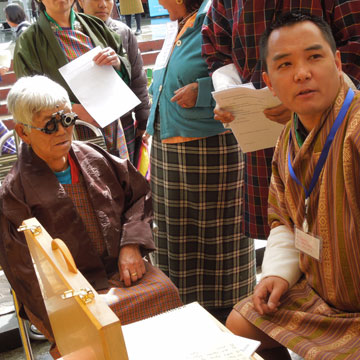The Leading Graduate Program in Primatology and Wildlife Science (PWS) strives to realize global well-being. The program aims to foster individuals with the ability to make quick judgements about environmental issues and to design a future global society, while at the same time nurturing leaders indispensable for global action.
Japanese primatology has played a leading role in this unique academic endeavor. During recent years, the field of “Wildlife Science", which targets endangered species research, has begun to emerge. With fieldwork as its foundation, the fundamental aims of this field are a comprehensive understanding of the human mind, body, life and genome, as well as hands-on activities that target the well-being of the world.
While on the frontlines of academic research, wildlife science in Japan lacks three important careers that already exist in the West: (1) Conservation specialists with international organization, such as the United Nations and other NGOs; (2) Curators of museums, zoos, aquariums, and similar institutions, particularly those that can develop and/or expand museums or zoos as a “field museums" in a specific habitat; and (3) Dedicated individuals that invest great lengths of time in outreach activities in specific countries and societies, the so-called “boots-on-the-ground" approach.
While providing a foundation for new research, education and hands-on experience, this program aims to nurture global leaders whose accomplishments grow hand-in-hand with the larger academic field.

Conservation specialists of international organization(s) such as the United nations and NGO
Significant international contributions: Produce an individual that acquires expertise, high linguistic skills, and experience in fieldwork

Curators of museums, zoos, aquariums, and the like, as well as one that can develop and/or expand a museum or zoo as a “field museum” in a specific habitat
A career path in specialized knowledge, demonstrating one’s experiences, and contributing to society

Outreach workers that invests a great length of time in outreach activities in a specific countries and societies
Expanding Kyoto University’s tradition: Identifying the needs through on-site field of view; a leader who can propose significant contributions to Japan
